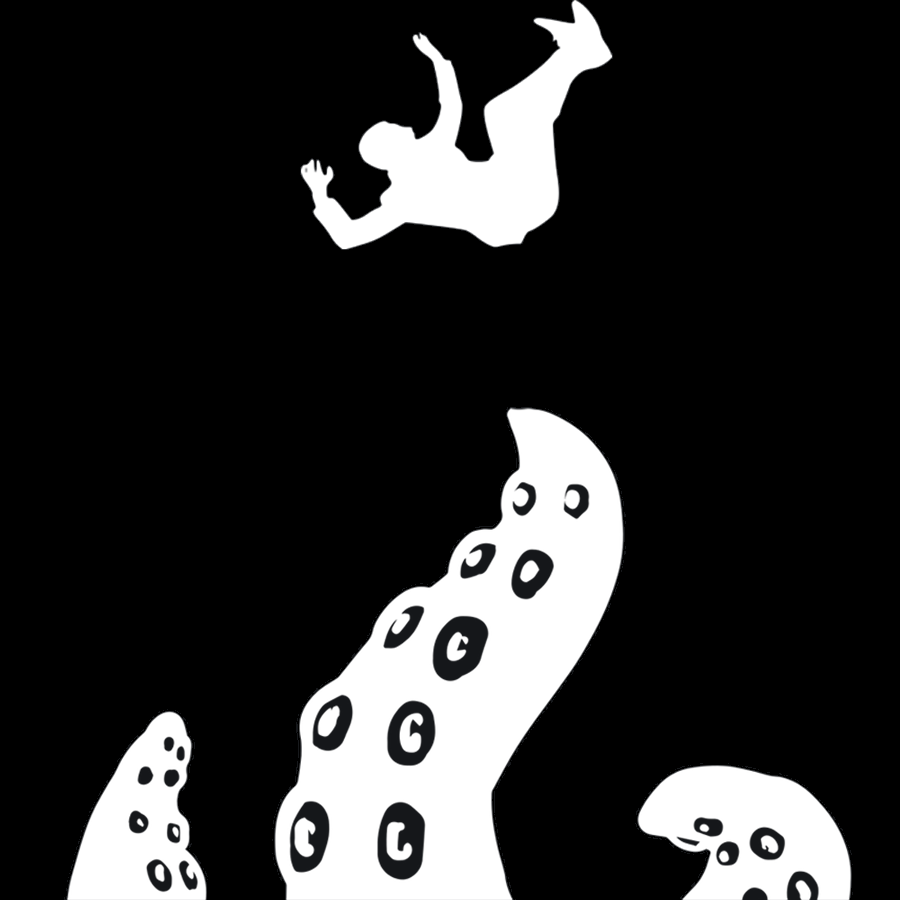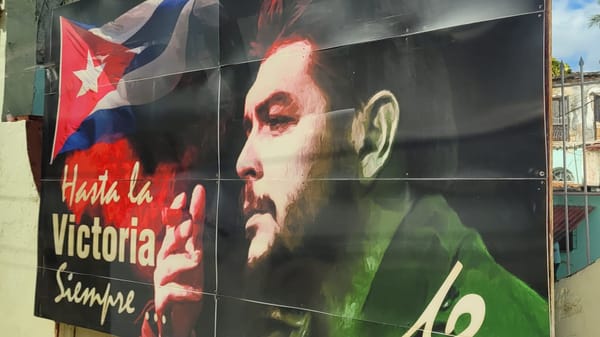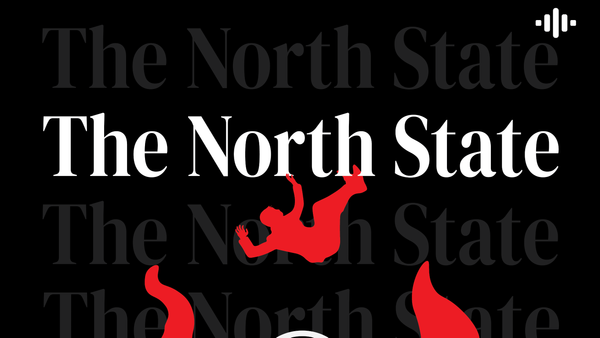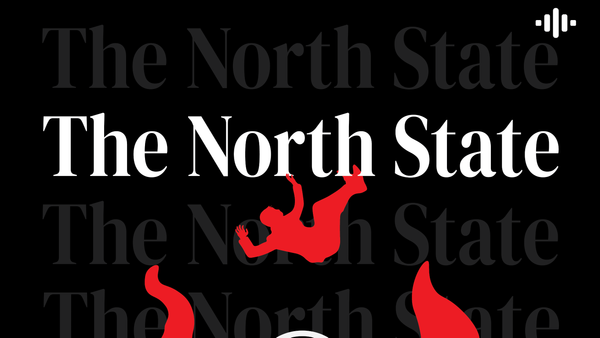Sitting Senator Planning Foundation to Help Sue Journalists
A conservative senator's comments hits the intersection of government interference and spotty reporting
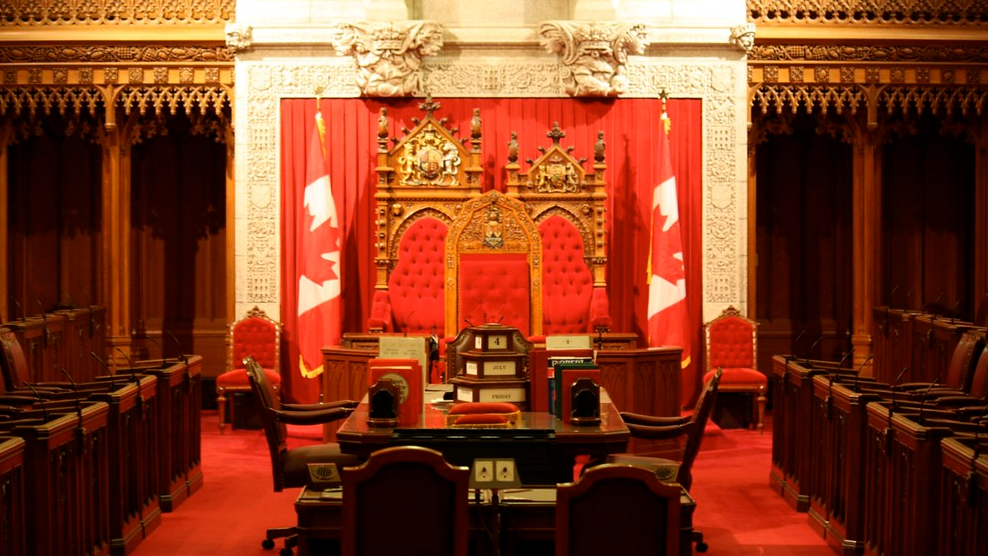
On June 5, sitting conservative senator Victor Oh made comments suggesting he has plans to create organizations which will help fund legal action against journalists. This news didn’t hit the mainstream until June 23, when The Canadian Press reported conservative senator Oh’s statements found in a video on WeChat, described as taking place at the Montreal Chinese Community United Centre.
But the context of these statements are as important as the fact they were made. The Canadian Press found the comments were uncovered by the Substack Found in Translation, a news letter specifically aimed at “First-hand research materials on CCP's disinformation campaign and global interference operations.” Their about section says that it hopes its work “helps people see the need for impartial Chinese-language media in Canada, and also helps people understand what kind of influence the CCP has in Canada.“ The landing page uses Terry Glavin’s fawning praise to entice readers to subscribe.
“Our newsletter will simply curate some of the more questionable material in Chinese media and translate it straight up for you to read.”
The newsletter, however, does not “simply” curate or “translate it straight up.” We’ll return to this later.
Oh’s comments, captured on video, included ”We will draft how to set up a nationwide foundation,” in response to “wave after wave” of suppression by journalists and news institutions, referring to Global News and the Globe and Mail’s reporting on alleged Chinese interference.
To be clear, the reporting on alleged Chinese interference has been very shaky, and I encourage you to read the two articles from Davide Mastracci at The Maple linked in the previous paragraph. It is also true that there are multiple lawsuits against Sam Cooper, the reporter who reported on these allegations against sitting politicians, and Global News. The real question here is: Is it political interference to plan for a foundation to fund these lawsuits?
Inherently, a sitting senator making this claim is interfering. Though Oh has not committed anything to such a foundation at this time, his intentions are clear. He hopes to fund these lawsuits against, in his view, “messy” reporting.
But it’s also crucial to note that, in David Johnston’s first report, he found allegations that sitting MP Han Dong worked to delay the release of the “two Michaels” from Chinese detention were “false.” Outlining explicitly that Dong “did not suggest to the official that the PRC extend their detention.”
Though there has been a public uproar about Johnston’s ties to Trudeau, there has yet to be evidence that contradicts this conclusion.
There are valid concerns surrounding the reporting of alleged Chinese interference, and the material effect they have on the accused. But there still remains the question of whether a sitting senator should propose an organization to fund lawsuits against this reporting. If, in this instance, reporting is found in court to have been shoddy and damaging to innocent people, what effect could this organization have in the future, where reporting may be more concrete?
Perhaps that’s the reason this story hasn’t been reported as widely as other aspects of the “foreign interference” topic. Oh is a sitting conservative senator, speaking to Chinese-Canadians about protecting them from future possible damaging and incomplete reporting, which has caused a new wave of sinophobia and red scare rhetoric on the national stage. It’s not an easy issue to parse out.
Even Pierre Poilievre has attempted to downplay the entire situation. When asked whether the caucus supports Oh’s statements, or whether reporters were attempting to smear Chinese Canadians, Poilievre’s office simply responded “no” to both questions. The office did not respond to a question asking if Oh will face consequences.
That brings us back to the original report on Oh’s statements from Found In Translation. Frankly, the idea that Translation is a newsletter that “simply curate[s]” or “translate[s] it straight up” is misleading. Let’s go through the post itself.
Firstly, the headline is misleading and contradicted by the first paragraph. Oh is not establishing a foundation, he said he “hopes” to establish it and that they “will draft how to set up a nationwide foundation.” At this point, Oh has not announced any paperwork, dates, or candidates to lead this organization. This is admitted to in the first sentence:
Canadian Senator Victor Oh (胡子修) is planning to set up a foundation to raise money for legal actions against Canadian politicians and reporters who engage in what he perceives as 'smearing Chinese people'…
The framing continues to be antagonistic, painting Oh as anti-Canadian, and pro-CCP. The subheader continues that “Beijing-aligned entities in Canada are gearing up their lawfare against Canadian critics.” The first subheader said this was Oh’s plan to “sue fellow Canadians” mentioning the comments took place at an event opposing the foreign agent registry. This, frontloaded with “Beijing-aligned,” frames Oh as an operative operating against Canadians.
Then comes the actual comments made by Oh. The aforementioned plans for a foundation are relayed. Its two key goals, according to Oh, are to financially support lawsuits against journalists and news media that “intentionally smear” Chinese Canadians, and to provide scholarships to Chinese Canadians to engage in politics.
After this point, the piece truly goes off the rails. The anonymous author (who’s name is presumably Kurt Hamilton, if their contact info on the About page is to be believed) divorces the proposed foreign agent registry from the sinophobic and red scare context under which it was proposed. Oh said that the proposed registry is a “disguised Chinese Exclusion Act,” and the piece immediately defends the legislation after this, stating “despite the fact that the purpose of a foreign agent registry is to combat foreign interference.”
The registry is defended, but parsing out Oh’s reasoning for his claim is not done.
Additionally, the in-line defense is not needed, as that purpose is known by anyone aware of the registry.
Then the article paints Oh and Senator Yuen Pau Woo as echoing “Beijing’s talking points on various occasions and have had frequent meetings with Chinese government officials.” Attendees are listed alongside their supposed links to China. This includes Tina Zhu, founder and president of the Canada-China Friendship Promotion Association. Zhu organized events criticizing Canada’s decision to detain Meng Wangzhou, an alleged Chinese spy who worked for Hydro-Quebec, and Brossard City Council member Xixi Li, who’s apparently involved in two organizations that have been investigated by the RCMP for being covert police stations for the Chinese government.
It should be clear that these three associations are proof that someone is a Chinese asset only if you presume guilt of the subjects. All three of these cases Zhu has organized events around are relevant to Canada and China. The only crime Zhu is guilty of, according to the piece, is not following the Canadian line on these people.
Later, the article highlights a concerning meeting Oh had with Chinese Australian named Richard Yuan who sent medical supplies to China in 2020, during the beginnings of the COVID pandemic. The piece then highlights Yuan filed lawsuits against three news media outlets. These outlets later issued apologies for reporting that he attempted to sell a shipment to the Australian government, rather than donate them as he claimed. The article frames this as Yuan providing the blueprint to suing news media, rather than a way to force a correction on inaccurate reporting.
This edition of The Catch is not meant to be a perfect dissection of Translation, as the article lists every notable attendee and related Chinese Canadian figure it possibly can tied to Oh and his comments. In effect, it’s a gish gallop of information hoping to smear by association any prominent Chinese-Canadian that holds a position which contradicts Canada’s. There’s nuance I’ve missed here, to be sure, but my intention was not to discredit Translation, merely to scrutinize its biases.
That, however, doesn’t downplay that Oh has announced intentions to form an organization that funds lawsuits against journalism outlets. Even if, in this instance, the reporting has shakey grounds, the resulting institution wouldn’t be utilized just to file lawsuits against this type of reporting. Oh’s conservative leanings should be taken into consideration regarding his intent. This is a story that should be followed, just not with the red scare rigor that Translation presents.
All in all, it’s a very messy, complicated situation. I haven’t covered it in the depth that it deserves here, but hopefully I’ve provided a useful overview of the dynamics at play. Regardless of the context, a sitting senator suggesting a foundation to fund lawsuits against journalists should raise concern. But more than that, it deserves a critical eye that seperates this concern from the anti-China hysteria that’s gripped Canadian politics as of late.
Spinoffs:
Congrats, Olivia Chow. Now Please Use The Strong Mayor Powers- The Maple
Check out my latest for The Maple, where I argue that newly-elected mayor of Toronto Olivia Chow should use strong mayor powers to achieve.
The Dead Pope Trial- The Bend of History
Listen to the latest entry of my history podcast, where Montreal activist Zo and I discuss the circumstances and consequences that surrounded a ninth century pope being dug up and put on trial as a corpse.
